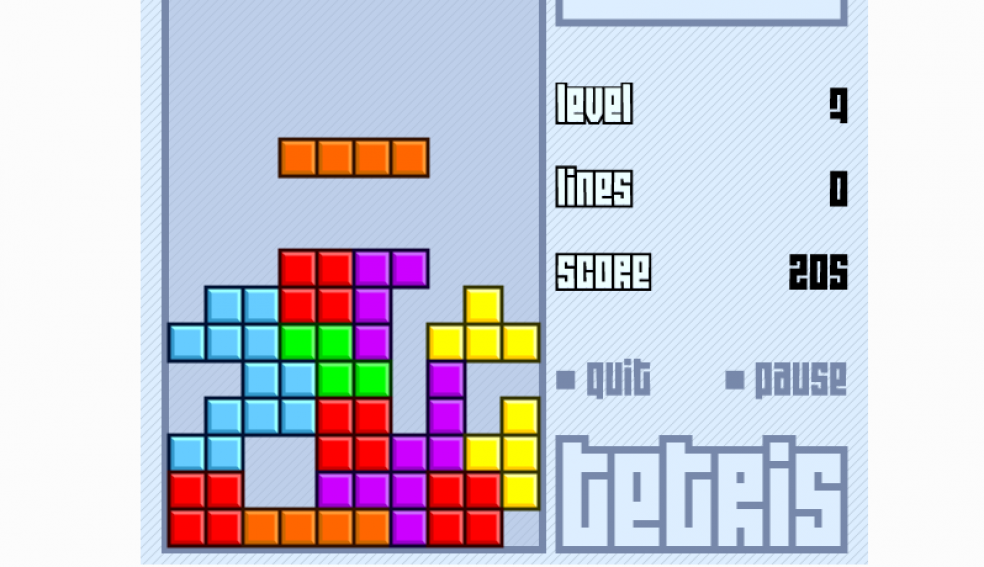
Playing Tetris has potential to help beat negative cravings
Playing Tetris for just three minutes can reduce the strength of cravings for food, cigarettes or alcohol, according to a new study.
Psychologists at Plymouth University say the visual stimulation provided by the game could reduce naturally occurring cravings for long enough to ward them off.
They believe it could provide a quick and manageable fix for people struggling to stick to diets, or trying to give up smoking or alcohol, providing an essential boost for willpower.
The research was conducted by PhD student Jessica Skorka-Brown, alongside Professors Jackie Andrade and Jon May, from the University’s Cognition Institute.
Professor Andrade said: “Episodes of craving normally only last a few minutes, during which time an individual is visualising what they want and the reward it will bring. Often those feelings result in the person giving in and consuming the very thing they are trying to resist. But by playing Tetris, just in short bursts, you are preventing your brain creating those enticing images and without them the craving fades.”
The study was conducted at the University, and asked participants to detail if and what they were craving and to rate those cravings in terms of their strength, vividness and intrusiveness.
One group of participants then played Tetris while a second sat in front of a screen, being told it was attempting to load, but ultimately not playing.
After just three minutes, the individuals were again asked to rate their cravings with the people who played Tetris experiencing 24 per cent weaker cravings than those who waited unsuccessfully for the game to load.
The research tests elaborated intrusion (EI) theory – which dictates that imagery is central to craving, and therefore a visual task should decrease it – and shows that it applies to naturally occurring cravings.
“Feeling in control is an important part of staying motivated, and playing Tetris can potentially help the individual to stay in control when cravings strike,” said Professor Andrade. “It is something a person can quickly access, for the most part whether they are at work or at home, and replaces the feeling of stress caused by the craving itself. Ultimately, we are constantly looking for ways to stimulate cravings for healthy activities – such as exercise – but this a neutral activity that we have shown can have a positive impact.”
The research was published in the Appetite scientific journal, and the full paper is available to view here.












